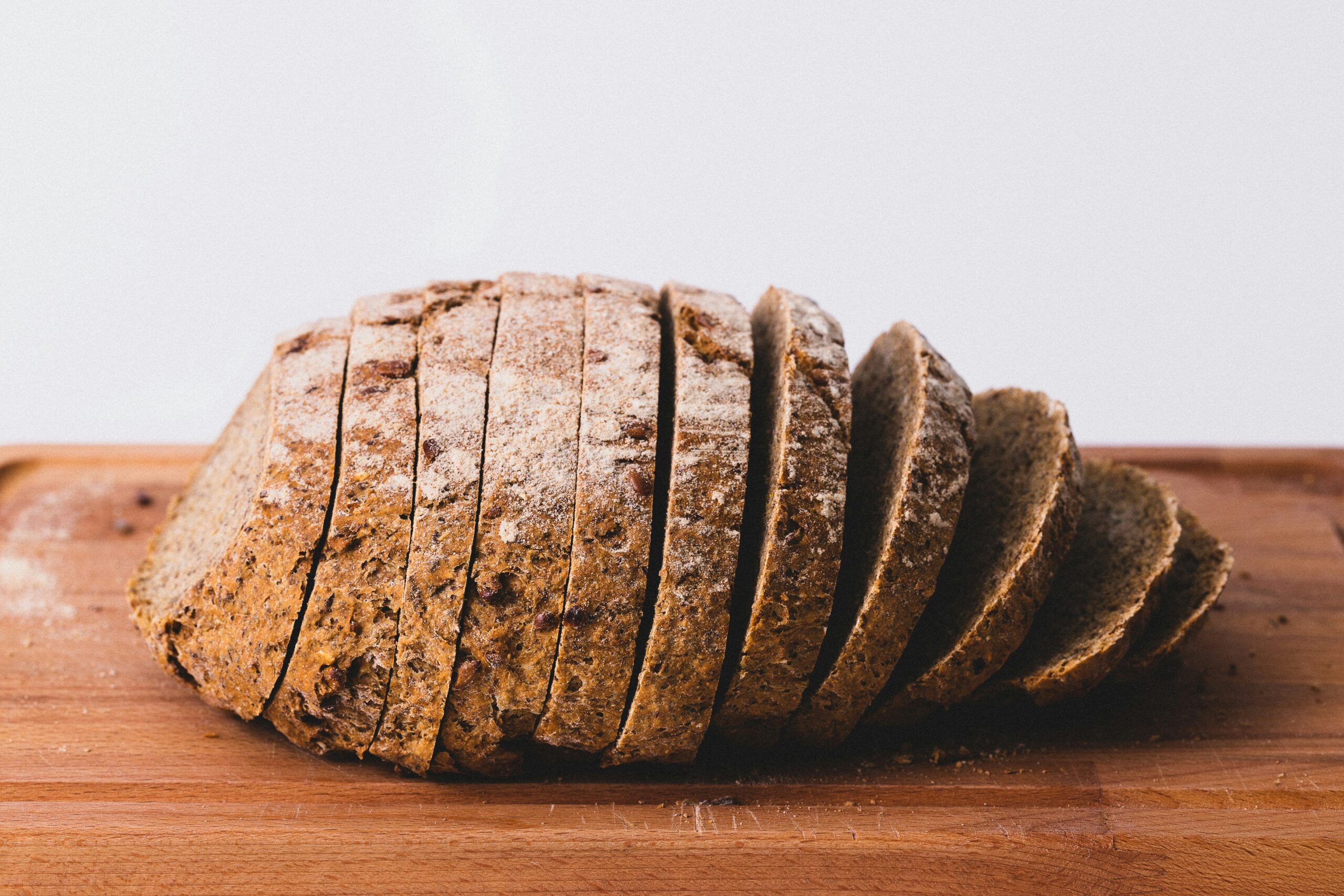I’m Megan, a registered dietitian living with Hashimoto’s and hypothyroidism. In this blog post I will be sharing the facts but also my personal experiences.
This may be a controversial topic, as there is research to support (1) that a gluten-free diet does benefit Hashimoto’s and some research that says it does not (2). I’ll discuss my own personal experience and talk through the relationship between gluten and the thyroid to help you determine if following a gluten-free diet for Hashimoto’s disease is right for you.
What is Hashimoto’s Disease?
Hashimoto’s thyroiditis is an auto-immune disease that affects the thyroid gland. Inflammation in your body produces antibodies that attack your thyroid gland and slowly destroy it. This results in decreased function of your thyroid to produce thyroid hormones and can eventually lead to hypothyroidism.
Inflammation can be caused by many different factors including stress, an inflammatory diet, environmental toxins, infections, and more. When treating Hashimoto’s, it is important to decrease inflammation by working with a healthcare provider to look into what the source of inflammation is. Unfortunately, there is no one cause for Hashimoto’s thyroiditis (3).
Many people think Hashimoto’s and hypothyroidism are the same, however, they are NOT the same. Hashimoto’s is the number one cause of hypothyroidism in the United States, but you can have Hashimoto’s without hypothyroidism and vice versa (4).
Hashimoto’s is most commonly diagnosed by a blood test of thyroid peroxidase (TPO) antibodies. If your blood test is positive for TPO antibodies, you likely have hypothyroidism (5). When I was diagnosed with Hashimoto’s, my TPO antibodies were off of the lab charts (>900)!
Gluten was a huge driver of inflammation for me. Next, I’ll discuss what a gluten-free diet is.
What is a Gluten-Free Diet?
A gluten-free diet avoids certain grains including wheat, barley, rye, and malt as well as any foods that are made from those ingredients. Typical foods containing gluten include breads, pastas, cereals, beer, pastries, baked goods, and more. There are also sneaky products that contain gluten–the worst offender is soy sauce. Additionally, gluten is found in malted milkshakes, sauces such as Worcestershire, salad dressings, Rice Krispies, meat substitutes, and more.
Some people follow a gluten-free diet by choice, others follow it because it is medically necessary. A gluten-free diet is the only treatment for celiac disease, an auto-immune disease where gluten damages the lining of your small intestine and inhibits nutrient absorption (6).
People with non-celiac gluten sensitivity or gluten-intolerance may also choose to follow a gluten-free diet due to uncomfortable symptoms, such as bloating, caused after eating gluten. Right before I was diagnosed with Hashimoto’s and hypothyroidism, I noticed I would get bloated all the time when I wasn’t on my period. The culprit..? GLUTEN.
If you do NOT have celiac disease, non-celiac gluten sensitivity, gluten-intolerance, or Hashimoto’s, there is no reason to follow a gluten-free diet. By cutting gluten out of your diet you are more prone to nutrient deficiencies such as B12, vitamin D, and folate (7). These nutrients are commonly found in fortified wheat products such as whole grain breads and pastas. Whole grains are beneficial for your health. If tolerated, gluten is not inherently bad.
The bottom line…don’t go gluten-free unless it is medically necessary and you absolutely have to.

How is Hashimoto’s Disease Related to Gluten?
Some molecular components of gluten look very similar to parts of your thyroid–this is called molecular mimicry (8). If your body is already producing antibodies that are attacking your thyroid, and they see that gluten looks the same as your thyroid, then your body is going to mount an immune response to gluten which will cause an increase in TPO antibodies.

Should you Follow a Gluten-Free Diet for Hashimoto’s Disease?
Some research shows that a gluten-free diet has no effect on Hashimoto’s and thyroid health, however, from personal experience, I beg to differ (9).
My TPO antibodies were > 900 when I was diagnosed. And the first thing my doctor told me? Go gluten-free…FOREVER! As a foodie, I was devastated. No more croissants? No more pasta? How could I even be a foodie? It took me a while to come to terms with this diagnosis and a new diet that I had to follow, but after walking the aisles of grocery stores and perusing restaurant menus, I saw that there were many gluten-free options.
Anyways, I made the switch to a gluten-free diet, and my labs one year later showed my TPO antibodies had dropped down to 550. This showed proof that cutting out gluten decreased inflammation in my body, as it was the only change I made to my diet and lifestyle after being diagnosed.
If you are feeling doubtful about going gluten-free to manage your Hashimoto’s, try it for a few months and see how it impacts your lab values.
I know going gluten-free can be very overwhelming, that’s why I created a thyroid-friendly breakfast recipe e-book to get you started. You can download it for FREE at this link. This e-book will remove the stress of meal planning and ensures each dish is not only gluten-free but also packed with nutrient-dense ingredients.
Disclaimer: This post is intended for inspirational and informational purposes only, is not a substitute for medical advice, and is not intended to diagnose, treat, prevent, or cure any disease. Consult with your healthcare provider before making any changes to your routine.

